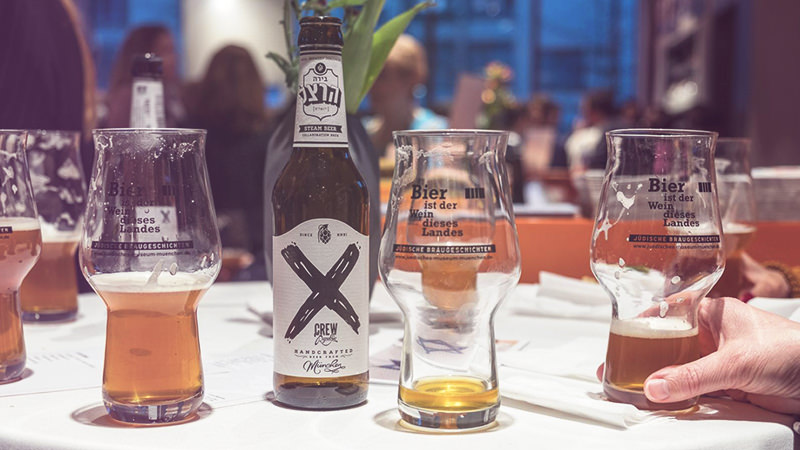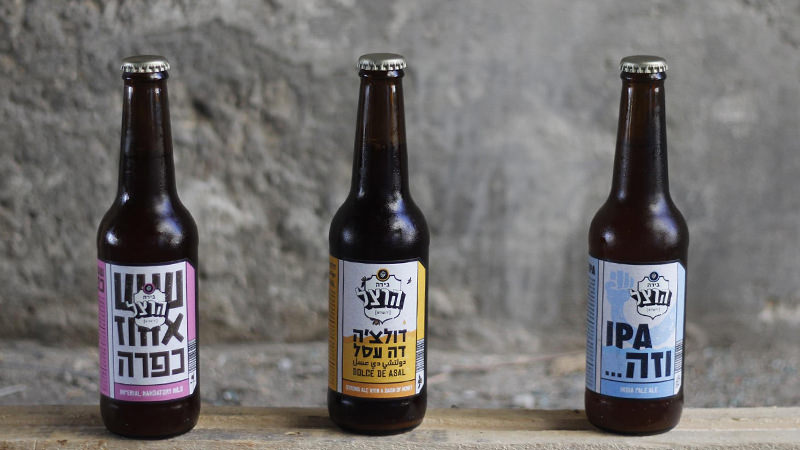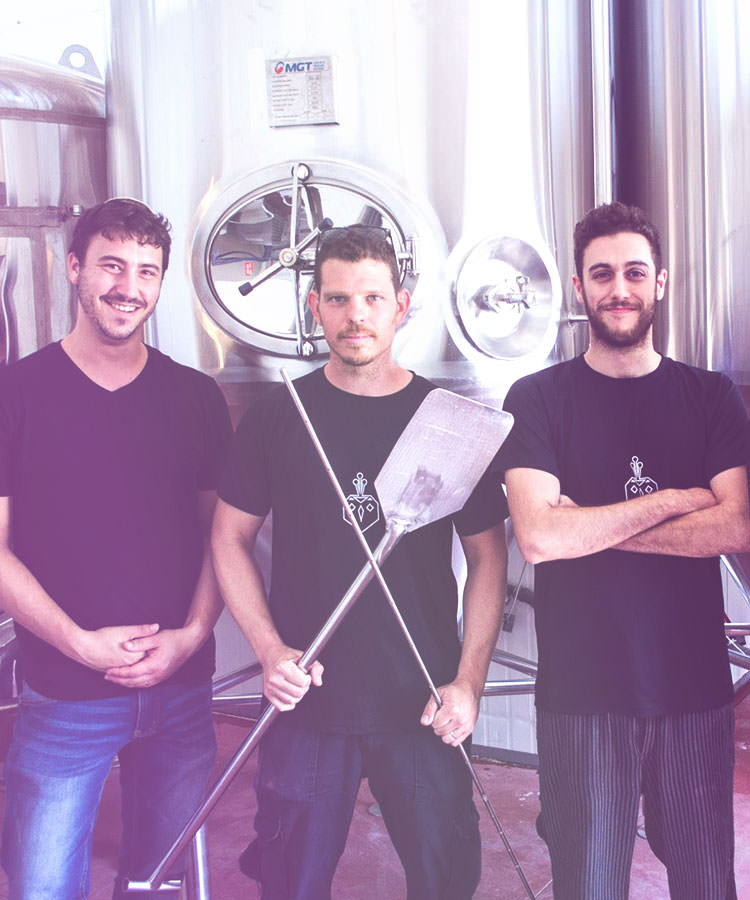During the day, Machane Yehuda in Jerusalem, Israel, is an open-air fruit and vegetable market. But at night, it transforms into one of Israel’s hippest spots for nightlife. And recently, a centerpiece of that nightlife has been craft beer.
The market boasts dozens of bars and restaurants that offer Israeli craft beers. Beer Bazaar, a store, bar, and restaurant in Machane Yehuda, offers 100 different types of craft beers from almost all of Israel’s two dozen craft brewers. They also brew five of their own beers, offering tasting flights and even a roulette wheel with 10 shot glasses of different beers from the tap.
“We are all about Israeli craft beer,” Avi Moscowitz, one of the owners of Beer Bazaar, told me on a recent Thursday night. “We are looking to be part of the Israeli ecosystem of beer – the local beer scene. We are a store which provides a platform for people making beer to sell it to the public. People coming in know there’s always a new beer available.”
Don't Miss A Drop
Get the latest in beer, wine, and cocktail culture sent straight to your inbox.There are also beer festivals all over the country, attended by thousands of people. It is part of a revolution in Israel of craft everything – craft beer, boutique wineries, artisanal bread, and olive oil.

But the artisanal appetite for beer has a historical aspect, too. According to one theory, at least, beer was, in fact, first brewed in the Middle East thousands of years ago, in ancient Mesopotamia, which is today in Iraq.
Fast-forward a few thousand years and you can find yourself in the Herzl brewery in Jerusalem in an industrial zone in the southern part of the city, tucked between car repair shops. Behind a green-painted metal door, Maor Helfman and Itai Gutman are making half a dozen craft beers.
“We are the only brewery in Jerusalem, which means we are the best brewery in Jerusalem, and the most award-winning brewery in Jerusalem,” Helfman says with a laugh. “I am the owner, the CEO, and the one who cleans the floor. I don’t even have a secretary.”
Herzl brewery (named after both the founder of Zionism, Theodore Herzl, and a popular Israeli male name) is at the forefront of the craft beer revolution that is just getting underway in Israel, with about two dozen commercial craft breweries. Herzl makes and sells 5,000 liters a month of beer, and they are always sold out. To increase production would mean buying new equipment, a financial step Helfman is not quite ready to take.
“We are 30 years behind the U.S. in everything,” Helfman said. “Look at wine. In California, it started in the 1950s, and here, in the 1980s, with the Golan Heights Winery.” Today, Israel has about 300 wineries, and Israeli wines were even featured on the cover of Wine Spectator recently. But when it comes to craft beers, Israel is just getting started.

Israel does not grow its own malt or hops. Instead, they are imported from the U.K., Germany, or the U.S. And despite the intense summer heat of the Middle East, Israelis are not big beer drinkers, consuming only 14 liters of beer per person, one-tenth of what is drunk in the Czech Republic. The U.S. consumes half that — around 70 liters per person per year. The vast majority of the beer consumed in Israel is from industrial producers like Tuborg and Goldstar. And craft beer in Israel, as in America, is expensive – a bottle of Helfman’s beer sells in a pub for about $10, which is more than the hourly minimum wage.
Still, Israelis seem willing to pay; if Machane Yehuda is evidence of anything, it’s of that. Doug Greener, who writes the blog, “Israel Brews and Views,” has put together a map of the market showing where customers can buy craft beer.
“In the U.S., you see craft beer all over the place – in supermarkets and bodegas,” Greener said. “Israel isn’t there yet, but someone interested in enjoying craft beer can find it in bigger cities and specialty stores. More places are also giving courses in home brewing.”
In fact, most craft brewers got their starts as home brewers. Neil Churgin of Beertzinut (a play on words that means “seriously” in Hebrew) originally took up beer making as a hobby. (Full disclosure: Churgin is my brother-in-law and my teacher in all things beer.) He recently opened a brewery on Kibbutz Ketura in the Arava desert where he makes his home.
“Like many people, I started as a home brewer,” Churgin said. “I was baking breads and the idea of yeast and fermentation was interesting to me. It’s a logical leap from bread to beer with a lot of the same ingredients.”
Churgin uses dates from the orchards of the kibbutz, along with smoked barley to make a smoked date ale called Cool Majul, referring to a type of date variety.
It’s not the only local flavor that’s made its way into Israeli craft beer. Herzl’s flagship beer has a shocking pink label and is called Six Percent Kapparah. Kapparah is a Hebrew word that literally means atonement, but also is used as a term of endearment, like babe, or baby. It’s a red ale that Helfman describes to me as “very hoppy, with a little maltiness.” Then, with a “l’chaim,” (to life) he pours out a taste.
